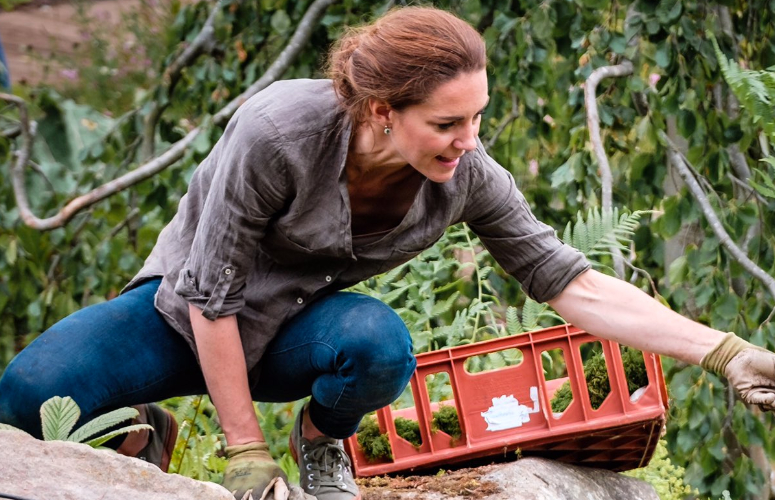As the title mentions that this is simple, but I never claimed it would be a walk in the park. Kids can really test your patience, and staying polite to someone who’s being difficult can be a challenge, especially when you’re exhausted from taking care of their needs. I shared this as a little reminder for myself too.

Children don’t instinctively know how to behave; they learn from the people around them. If you want to raise children who have good manners, you should know, you are the most significant influence in your child’s early years, shaping how they interact with you and others. When you ask them to do something, remember to say please. Show appreciation by saying thank you when they complete the task.
This dynamic isn’t limited to kids; it also occurs among adults. They are always paying attention to how we communicate. Sometimes, you might just say “bread” to your partner, who hands it over without a “thank you.” That’s totally fine; we know we care for each other, and we might be a bit exhausted by the end of the day. However, it’s important for kids to see these interactions modeled. Instead, try saying, “Could you please pass the bread?” and when they respond with “Sure! Here you go,” follow up with a “Thank you!” I can assure you, they will learn from your example.
Treating others with respect is fundamental to good manners, and being sensitive is key to showing that respect. As a parent, it’s your role to help cultivate sensitivity in your children. Often, children who are more sensitive tend to excel in their interactions with others. It’s important not to overlook your children’s sensitivity; instead, encourage their grasp of respect by modeling respectful behavior yourself.
If you make a mistake, apologize
Always knock before entering their room and wait for their permission. If you need to borrow something of theirs, ask first and respect their answer if they decline; it belongs to them.
If you make a mistake, apologize—there’s no need for it to be immediate, but it’s important to acknowledge it. Use gentle words and a calm tone; if you raise your voice when they are young, you might be teaching them that yelling is an acceptable way to communicate as they grow into teenagers.
One of the most effective ways for parents to instill good manners in their children is by demonstrating polite behavior themselves. Kids often look to their parents as role models for how to act. If parents exhibit poor manners, their children are likely to mimic those behaviors. To raise children who are courteous and respectful, it’s essential to treat everyone—friends, family, and even strangers—with kindness and politeness. By doing so, you can be confident that your children will adopt these positive behaviors and apply them in their daily lives.

It’s important for children to learn how to act appropriately in various situations from a young age. Since young kids may not grasp certain social rules, teaching them good manners can be quite challenging. To help, have conversations with your children about the behaviors you expect in specific situations, especially when they encounter something new. For instance, explain how to conduct themselves during a doctor’s appointment or when visiting family members. Being clear and specific will foster a better understanding between you and your child in these matters.
Many adults enjoy some time away from their kids, but it’s essential to involve children in certain adult activities that are suitable for them. These experiences shouldn’t be overlooked, as they play a crucial role in helping kids socialize early on. Each of these moments can serve as a valuable opportunity for practical learning. You can take the chance to teach your children about acceptable noise levels in public spaces, the importance of respecting others’ property and privacy, and more. Clearly, these experiences are beneficial in guiding children toward good manners.
With patience, love, and a commitment to politeness, you can successfully navigate this journey.
When your children are still learning to speak properly, it’s important to gently correct them whenever necessary. Be mindful of your tone while doing so. While it’s true that adults shouldn’t use “childish” language with little ones, harsh corrections aren’t the answer either. Use a soft voice, even when they make mistakes, and encourage them with kind words before pointing out any errors.
This approach helps to support their efforts rather than discourage them. Raising well-mannered children who can thrive socially is a challenging task that requires time and dedication.
While many of us envision a society where everyone is exceptionally courteous, it’s important for parents to remember that every individual, including their kids, has unique personal boundaries that deserve respect. Genuine respect for others cannot exist without well-defined personal limits. So, make sure to guide your children on how to assertively say “no” when needed. Assist them in recognizing and establishing their own boundaries, as well as learning how to safeguard them.
As a parent, you play a crucial role in every aspect of your children’s lives, and it’s your responsibility to find effective ways to nurture their independence and self-sufficiency. With patience, love, and a commitment to politeness, you can successfully navigate this journey.


